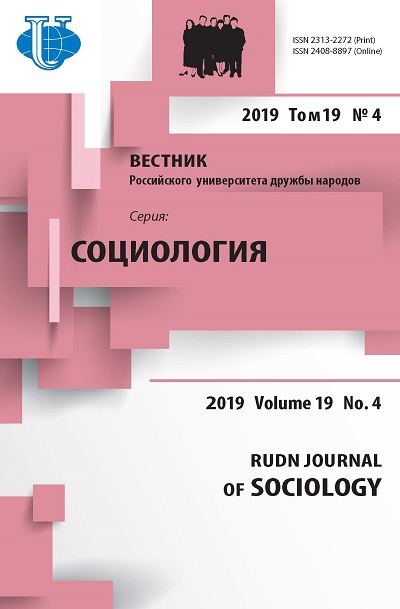Happiness and heroism, personal and collective as main elements of the ‘bright future’ in the Soviet (non)utopia
- Authors: Trotsuk IV1,2, Subbotina MV1
-
Affiliations:
- RUDN University (Peoples’ Friendship University of Russis)
- Russian Presidential Academy of National Economy and Public Administration
- Issue: Vol 19, No 4 (2019)
- Pages: 835-848
- Section: Reviews and Essays
- URL: https://journals.rudn.ru/sociology/article/view/22102
- DOI: https://doi.org/10.22363/2313-2272-2019-19-4-835-848
- ID: 22102
Cite item
Full Text
Abstract
The article is a review-reflection on the book by I. Kaspe In Alliance with Utopia. Semantic Frontiers of the Late Soviet Culture (Moscow: New Literary Review; 2018. 432 p.). Despite the fact that the title emphasizes the word ‘utopia’, the author prefers a broad interpretation of the ‘utopian’ concept - as a kind of conceptual context which serves as a framework that makes ‘ultimate’ meanings and values of the Soviet culture (socialism) as if ‘visible’. It may seem strange at first glance, but actually these meanings and values concentrate ‘around’ different interpretations of heroism and happiness. The article reconstructs the author’s narrative logic together with the formal structure of the book, which helps the author to prove to readers (with varying degrees of credibility) the heuristic potential of utopia as an analytical research metaphor. In particular, from the first to the final parts of the book (and the author honestly informs readers in the beginning that the book is a collection of the revised articles that were published previously, but later were adapted for the task of the historical-phenomenological analysis of the perception of utopia and combined into four thematic sections) the author develops her own concept of utopia focusing rather on different attitudes to the utopian thinking than on different interpretations of utopia in different historical periods.
About the authors
I V Trotsuk
RUDN University (Peoples’ Friendship University of Russis); Russian Presidential Academy of National Economy and Public Administration
Author for correspondence.
Email: irina.trotsuk@yandex.ru
доктор социологических наук, профессор кафедры социологии Российского университета дружбы народов; ведущий научный сотрудник Центра аграрных исследований Российской академии народного хозяйства и государственной службы при Президенте Российской Федерации
Miklukho-Maklaya St., 6, Moscow, 117198, Russia, Vernadskogo Prosp., 84, Moscow, 119571, RussiaM V Subbotina
RUDN University (Peoples’ Friendship University of Russis)
Email: mariya.subbotina.1995@mail.ru
аспирант кафедры социологии
Miklukho-Maklaya St., 6, Moscow, 117198, RussiaReferences
Supplementary files













